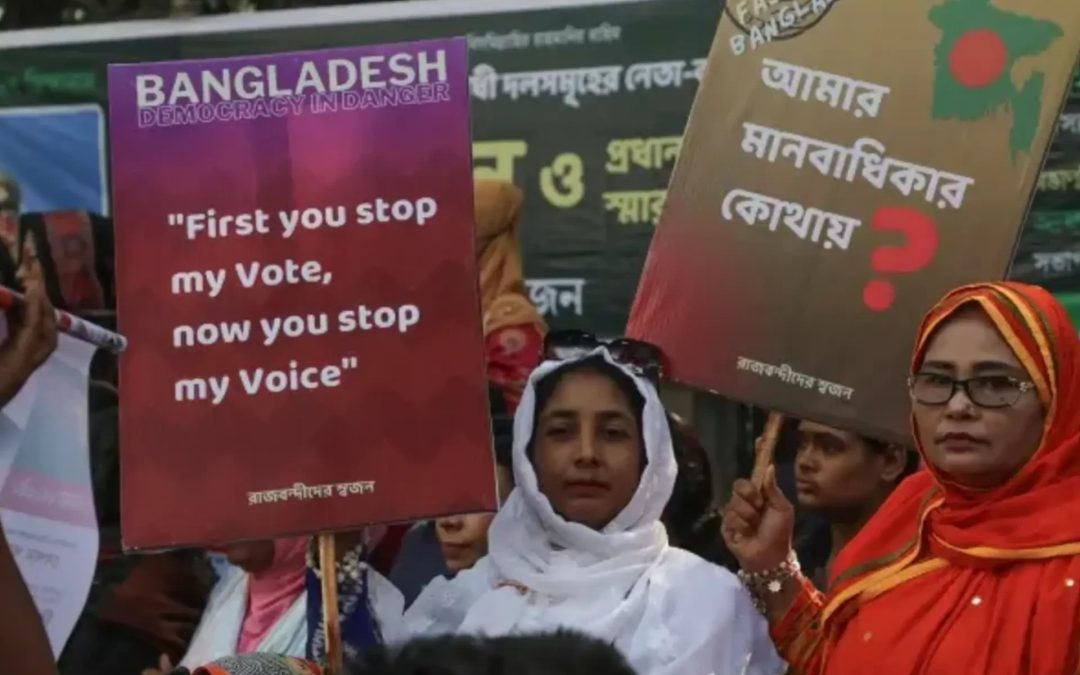Relative of political violence victims protesting in Dhaka, Bangladesh|Photo by Kazi Salahuddin Razu/Nur
Concerns about freedom of speech and the media have grown in Bangladesh over the past few years. This has made people wonder how committed the country is to international human rights and liberal democratic ideals. This study doesn’t make any direct accusations but instead looks at how things are changing and how hard it is for people and the media to say what they think.
Changes in the media and their impact:
Between 1991 and 2001, Bangladesh’s path towards open democracy looked promising, but it has since run into problems. Bangladesh is currently ranked 162 out of 180 countries in the 2022 World Press Freedom Index. This shows that the government is becoming more authoritarian. People have noticed that Prime Minister Sheikh Hasina’s government, which has been in power since 2009, uses mainstream media in a way that silences opposition views and encourages censorship.
Laws and how they affect things:
The Communication Technology Act (2006) and the Digital Security Act (2018) are two laws that make it easier for the government to control the media. Some people have said that the second rule is one of the strictest in the world for journalists. The Digital Security Act was created to protect information, but it has led to many cases, which could mean that people can’t say what they think.
Problems with free speech:
Police actions like arrests, detentions, and physical attacks are examples of putting down dissent, which makes the media environment more divided. The attack on Dainik Somoyer Narayanganj’s headquarters and other recent events show that media sources are dealing with a climate of fear and censorship.
To sustain Democratic values:
Because of these problems, the government needs to rethink how it deals with the media and free speech. The Digital Security Act was made to keep people safe, but now people are worried about how it will affect their right to free speech. Bangladesh wants to protect its democracy values, and promoting liberalism, mediation, and tolerance could help do that. If these changes aren’t made, the country could end up staying an electoral autocracy, which would make it harder for people to freely express their views.

